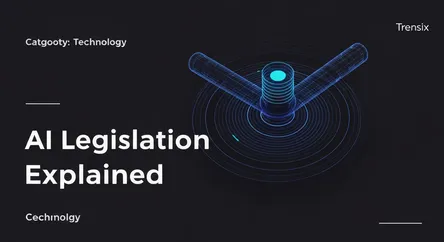Technology
AI Legislation Explained

Discover the laws and policies being created to govern artificial intelligence, ensuring its safe, ethical, and fair use for everyone.
What is it?
AI legislation refers to the body of laws, regulations, and policies enacted by governments to oversee the development, deployment, and use of artificial intelligence. Its primary goals are to mitigate potential risks, such as algorithmic bias and privacy violations, while fostering responsible innovation. These legal frameworks aim to establish clear guidelines for accountability, transparency, and safety, ensuring that AI systems are aligned with human values and fundamental rights.
Why is it trending?
The rapid proliferation of powerful AI, from generative models to autonomous systems, has brought its societal impact into sharp focus. High-profile cases of AI-driven misinformation, ethical dilemmas, and concerns about job displacement have spurred governments worldwide to act. Landmark initiatives like the European Union's AI Act are creating a global blueprint for regulation, prompting a worldwide conversation about how to govern this transformative technology before it becomes uncontrollable.
How does it affect people?
AI legislation directly impacts daily life by setting standards for the technology embedded in services we use. It can protect individuals from discriminatory algorithms in job applications, loan approvals, and even criminal justice. For consumers, it means greater transparency about how their data is used by AI systems. For developers and businesses, it provides a clear rulebook for building and deploying AI, aiming to increase public trust and ensure that AI's benefits are distributed equitably and safely across society.